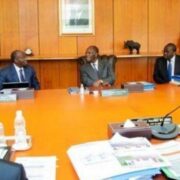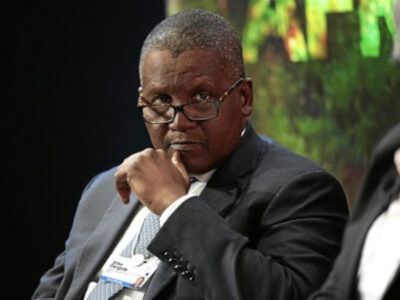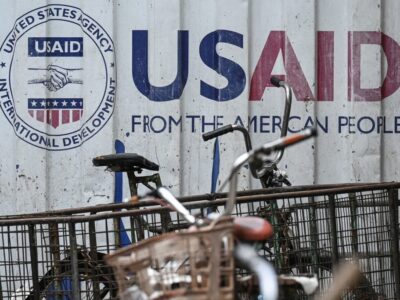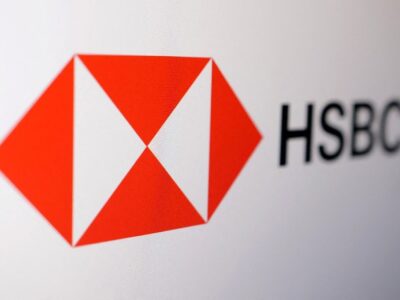
(Ecofin Agency) – The capital increase is a winning bet for the development bank, which is significantly improving its ability to mobilize resources on international markets while its member countries -with lower ratings- have seen their development financing needs grow considerably in recent years.
During its March 31, 2023, session, the WAMU council of ministers approved the modification of the statutes of the West African Development Bank (WADB) The decision comes months after the first stage of the WADB capital increase was approved on December 30, 2022.
Vote of confidence and stage win
In the absence of new A-rated investors, the bank’s existing shareholders will inject a first tranche of CFAF 554.35 billion ($ 920 million) to increase the bank’s capital, by 48%, to CFAF 1,709.35 billion.
The details of the operation are yet to be officially announced. Nevertheless, according to information provided by WADB chairman Serge Ekué (photo) to the French newspaper Les Echos in February 2022, the Central Bank of West African States (BCEAO) will subscribe in part to this capital increase, but its 46.9% stake should be diluted. Meanwhile, the eight A-rated shareholders (Benin, Burkina Faso, Côte d’Ivoire, Guinea-Bissau, Mali, Niger, Senegal, and Togo) are expected to subscribe in equal part and keep their stake unchanged at 5.9%.
The remainder of this first round of the capital increase will be contributed by B-rated shareholders, the WADB’s partners, and financial institutions, notably France (whose stake is expected to increase from 3.2% to 3.5%), Germany, the European Investment Bank (EIB), the African Development Bank (AfDB), Belgium, China, and Morocco. Overall, it is a vote of confidence for the West African Development Bank as it seeks to improve its credit rating. In their latest assessments, Moody’s and Fitch Ratings affirmed the development bank’s Baa1 and BBB investment grades.
More financing buffer
The capital increase will boost the development bank, WAMU’s highest-rated institution, improve its ability to raise funds on financial markets, and increase its lending capacity.
It also moves the development bank away from the dangerous debt capacity zone, a culmination of a recovery process that started in 2020 when the WADB’s debt ratio reached 255%, below the statutory 300% a year earlier. In 2021 and 2022, the bank continued actions to “strengthen its risk management framework” and ensure “the consolidation of its solvency and capital adequacy.” However, the ratio was still going down, remaining just above the 200% mark as of late July 2022.
Agriculture, employment, drinking water, and climate projects targeted….
However, to finance and increase its interventions, the WADB needs resources. As outlined in its investment program, the Djoliba strategic plan, the institution plans to invest about CFAF 3.3 trillion over 2021-2025. Three-quarters of the amount is expected to go to the public sector and one-quarter to the private sector.
Its interventions are expected to focus on five priorities, including strengthening regional integration, value creation and employment, climate change, human capital, governance, and increasing its financing capacity. By 2025, the institution’s objective is to financially support the creation of more than 245,000 jobs. It plans to finance the development of 12,000 hectares of land for the production of 170,000 tons of rice per year. In the transport sector, the bank plans to finance the construction of 13,000 km of roads to improve infrastructure and facilitate the movement of people and goods in the region.
In the energy sector, an additional 380 MW will be added to the network, with a minimum of 39% of that capacity allocated to renewable energy. Access to drinking water is also an important component of this financing. The bank’s financing should enable the construction of the infrastructure needed to increase average drinking water production by 88,000 m3/day.
Concessional financing
Some observers consider the WADB’s financing to be costly. The institution acknowledges that fact but, it is looking for ways to lower the costs of its loans. The Djoliba plan dedicates a whole section to that goal. “Concessional resources have been difficult to mobilize during the last two strategic plans and, with the difficult post-pandemic economic situation, we can not hope for a favorable change,” the document acknowledges.
According to the WADB, the capital increase, at the end of this first closing, led to a substantial reduction in the fees of its interventions in favor of WAEMU countries and its private sector. It will also boost its activity, including concessional operations. Every year, it will release CFAF 80 billion in concessional loans to fund important social projects.
Fiacre E. Kakpo










Comments